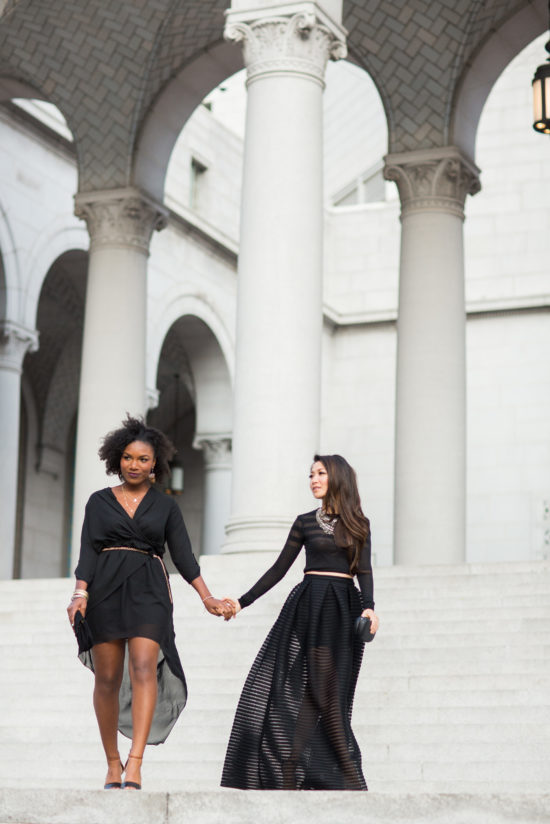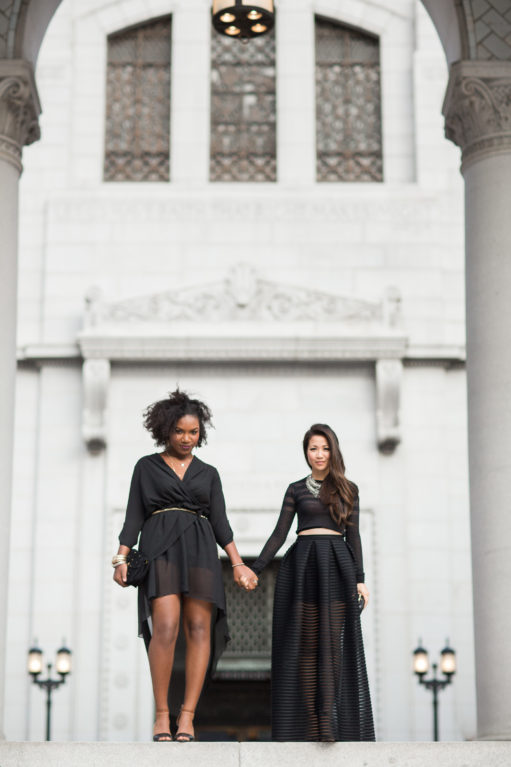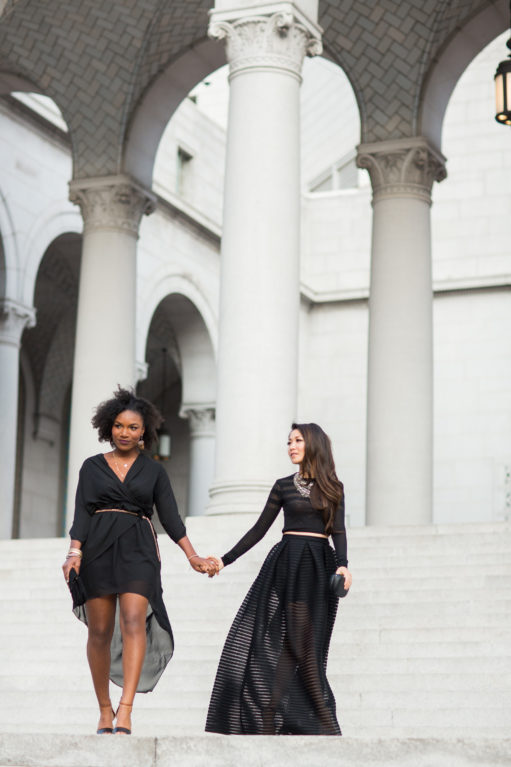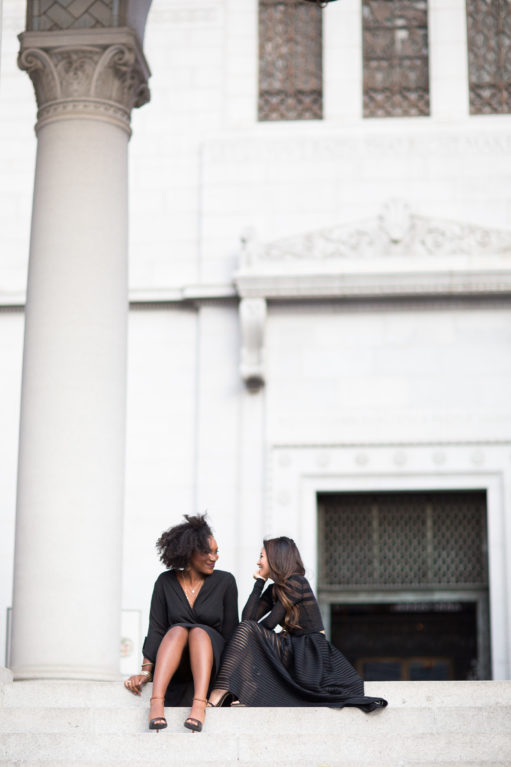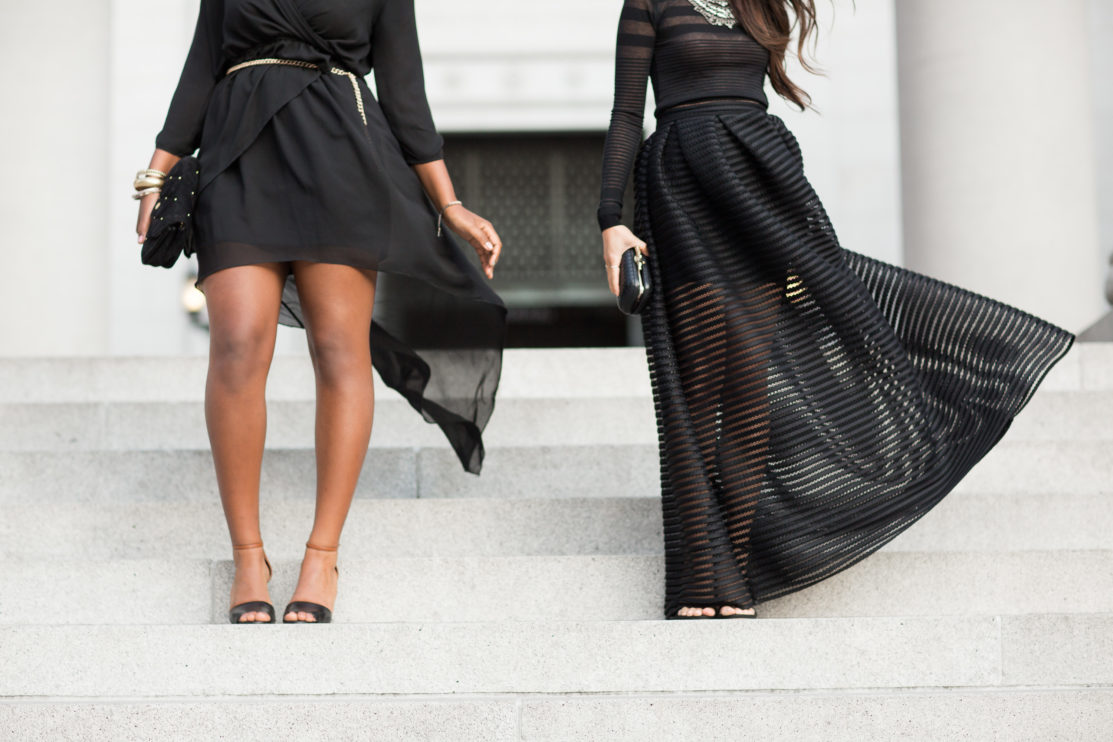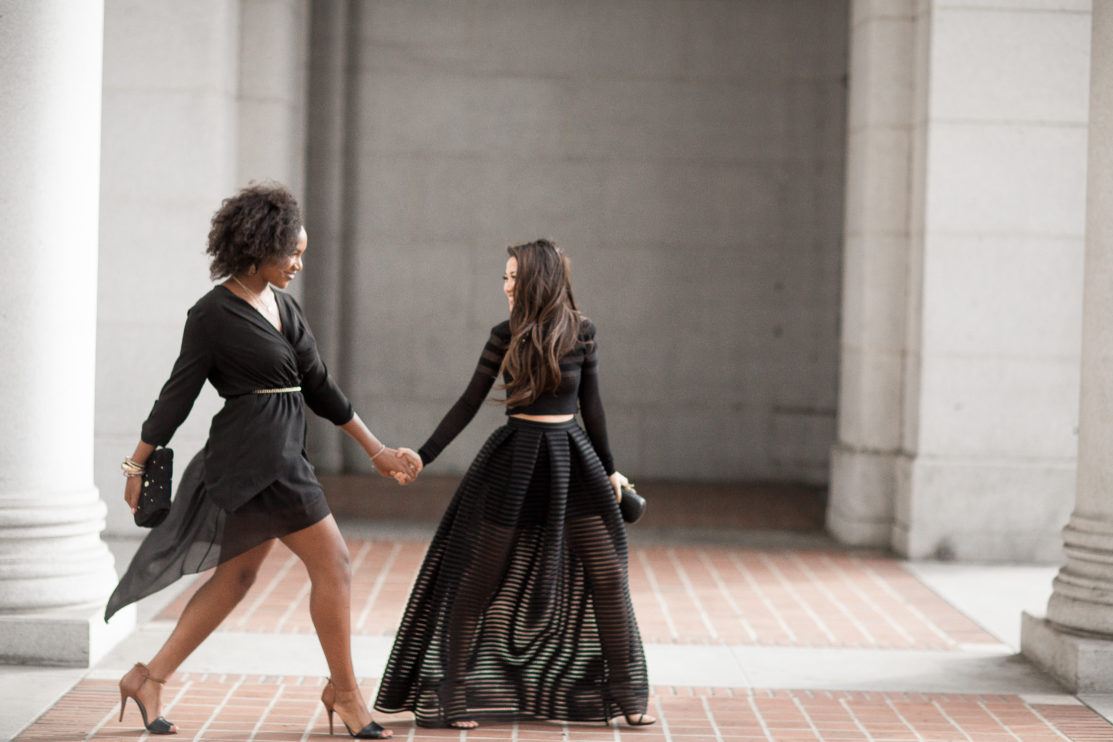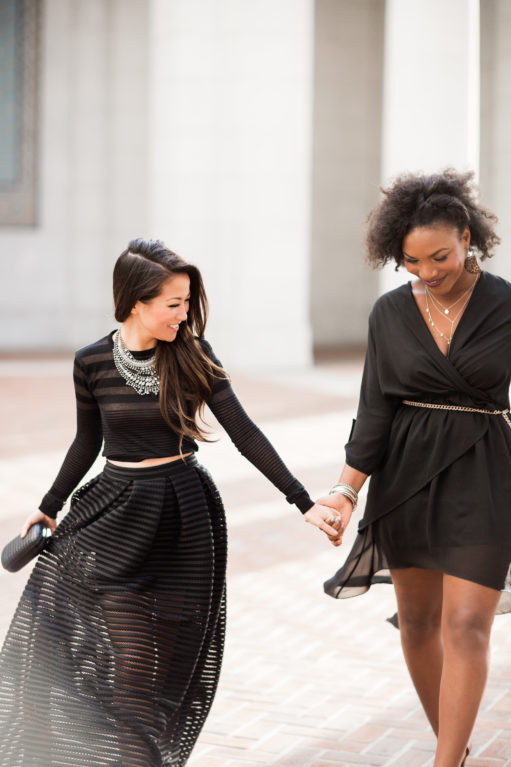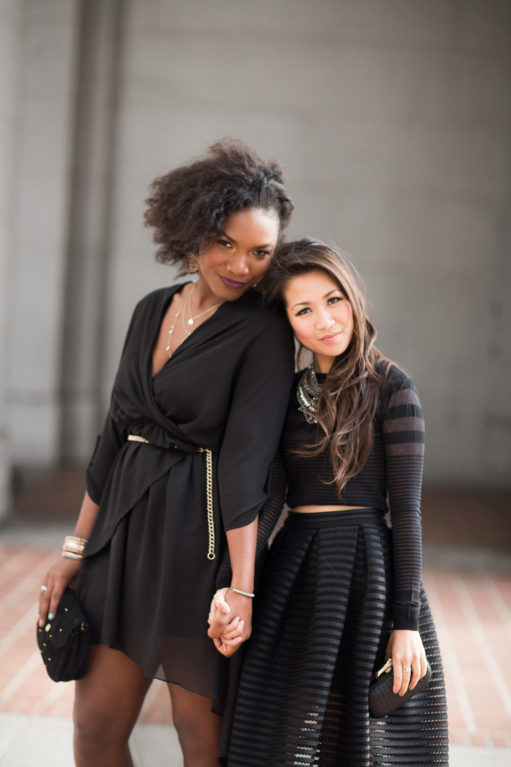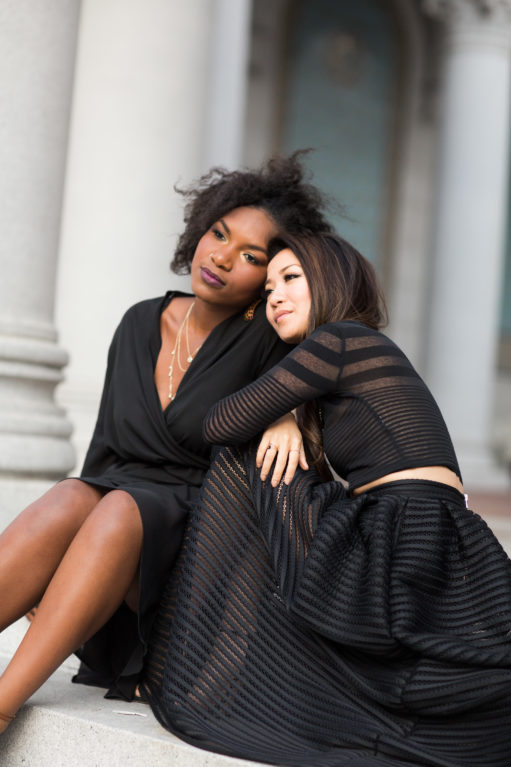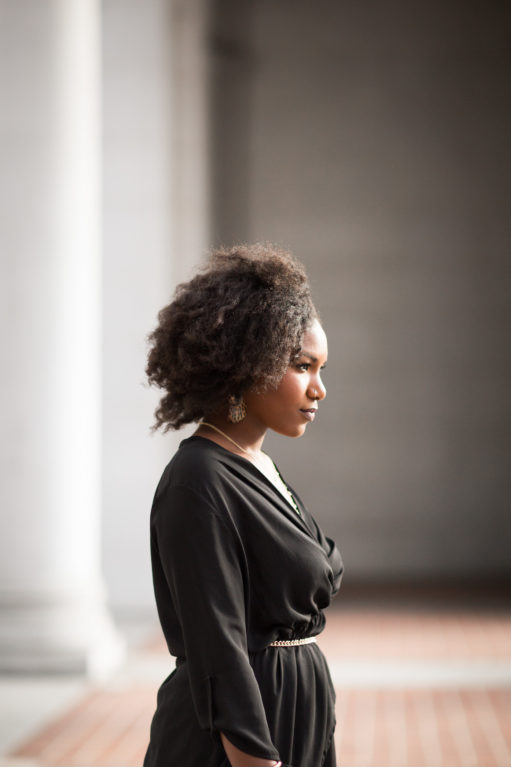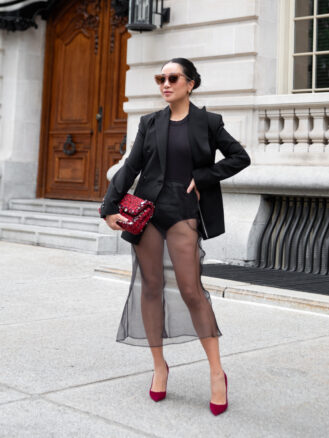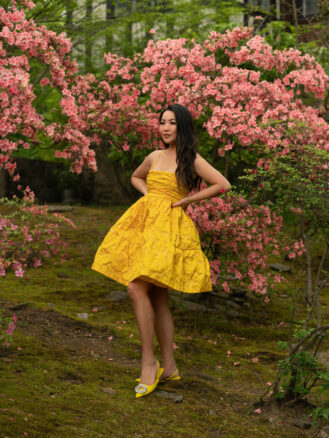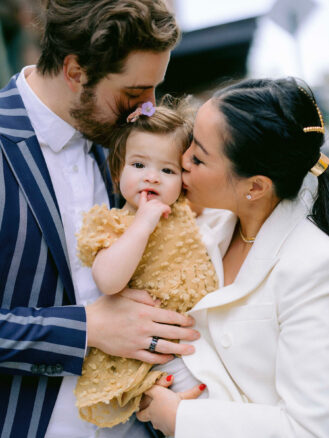Happy Monday everyone! Today, we’re doing something special. Please meet my mentee, Quiyona. Quiyona and I attended the CASA Black & White Charity Ball a week ago and wanted to share with you what we wore to the event (since this is a fashion blog =) and our thoughts on a few things that are very close to our hearts.
In addition to my love for fashion, I’m also a juvenile justice advocate. In the last ten years, I’ve volunteered and worked directly with youths and individuals from the foster care system. I was a counselor at the Berkeley Free Clinic providing mental health services to the homeless community, a teacher inside the San Francisco Juvenile Detention Center, and am now a mentor with InsideOut Writers, an LA based nonprofit organization dedicated to helping incarcerated youths. One of the connecting threads underlining all of these organizations is their support of foster care youths. In 2014, conservative studies found that 20% will become homeless after 18; 71% of women will be pregnant by 21; and 25% have experienced post-traumatic stress disorder which is twice the rate of US war veterans. And too often, many are at risk of moving back into government systems – from juvenile centers to prison. I’ve shared my views and experiences inside the foster care system before (in these blog posts here & here), and find that the answers to fixing this broken system very complex. I still don’t know if there’s a clear answer, but I think it starts at the human level… unconditional love and support.
I’m grateful to have this platform to share styling tips and my love for fashion. More importantly, I’m incredibly thankful for opportunities like these to have passionate conversations. Thank you so much for your time and for being on this journey with me. For your consideration, please kindly read Quiyona’s story below. It’s a story of strength, resilience, and hope. It sounds like a screenplay of a movie, but unfortunately, it’s the reality that many foster youths face.
“My mother, Geneva, was raised by a single-mother who became addicted to crack-cocaine. She is a twin who was accompanied by a younger brother. My maternal grandmother, Darlene, was known as a very sweet woman but also as a very tough parent. They’d have to leave for school to return home to home with no furniture because my grandmother had sold it for drugs. At just eleven years old, she and my aunt, Gevona, were forced into the streets to fend for themselves and my uncle, DeAndre. They were later subjected to the perils of living on the streets including long strains of gang and domestic violence.
At fourteen years old, my mother gave birth to her first child and practically every year after until I was born. At fourteen, she was invited into the home of her ex-boyfriend, which later became my father. My paternal grandmother convinced my grandmother, Darlene, to sign off her parental rights with a promise to look well after my mother. She took every source of income from my mother (including DCFS and welfare checks) then forced her to sell drugs on the street with my father. She took that money as well. If my mother refused, she ordered my father to beat her into submission. It was a very parasitic guardianship. When my mom was seventeen, she left her home. My grandmother sent my dad to find my mom and shoot at her while she was with my older brother and sister, Quinten and Quinnshay. She later reported my mother to DCFS saying she was involved in a gang shooting all for money and control.
I was her fourth (yes, I said fourth) child at just 18 years old and then, finally, she had my younger brother at 22. She took me to Texas to hide me for the first two years of my life. We returned back to California to live with my aunt (my mother’s twin) and her daughter, Ashley. Ashley later called DCFS (the Department for Children and Family Services) because she wanted to live with her father, which resulted in me being taken for “Child Neglect and Abuse.” That crushed my mother.
I say all of that to say that there was a huge problem before I was even taken from her. There was a lack of accessibility to resources and exposure to alternatives. She was abandoned by the very system that agreed to help her. This story isn’t unique; in fact, most of the youth who come out of the foster care system feel the very same way.
At four years old, I was taken away from my mother. My mother was abusive, however, she did the very best she could to love me coming from a place of trauma herself. From the ages of four to seven, I’d transitioned through at least four foster and group homes experiencing everything from sexual abuse to physical abuse. At seven years old, I was admitted into Kedren’s Mental Health Institution for eight months because I couldn’t act like a “normal” child. I was under high dosages of medication during that time. I was very incoherent. After the psychotropic prescriptions, I was drooling and hallucinating. At eight years old, I met my grandmother under the guise of a new foster mom. It took me about a month to realize that she was my father’s mother and my foster siblings, Quinten and Quinnshay, were actually biological siblings. I met my father in Ironwood State Prison at about ten years old. I knew nothing of the history of my family and how gloomy it was. For the next four and a half years, I was exposed to even more gang violence, sexual abuse, physical abuse and neglect. At twelve years old, I moved back with my mother. She saw the damages I’d suffered and worked very hard on helping me heal. She signed me up for counseling and different mentoring programs across L.A. County. I was not receptive at all. At thirteen, my DCFS case was closed. My mother rejoiced, but only a year later I found myself on probation for a school fight. A few weeks later, I ran away from home and landed myself into Los Padrinos Juvenile Detention Center. By the way, the irony is that the name of the juvenile hall means “the godparents” in Spanish.
My name is Quiyona Bridges (most often referred to as Yahniie) and I am now twenty-two year old. I am also a single mother, student, and peer mentor. I am the Graduate Program Coordinator for Spirit Awakening Foundation, on the Leadership Committee at the Anti-Recidivism Coalition (ARC), and on the Alumni-Advisory Board for InsideOUT Writers (IOW). I am connected to several other organizations in the community, as well. I stand in the community solely as an advocate for change and empowerment. I have transitioned through various facets within three of the most flawed systems in America: the foster care, mental health and juvenile justice system. These systems (foster care, mental health and criminal justice) operate on a very punitive level usually reinforcing or adding unnecessary trauma that perpetuates itself. It places bandages on deep-rooted mental and emotional wounds. The results are usually responded to in disdain and culpability is frequently shifted to the victim causing further disempowerment. In my opinion, these types institutions should handle these situations with a more restorative and humane approach. I believe that all any child needs is unconditional love and a support system to be successful. Every child deserves that chance.”
:: moments captured by ::
Thank you so much for reading!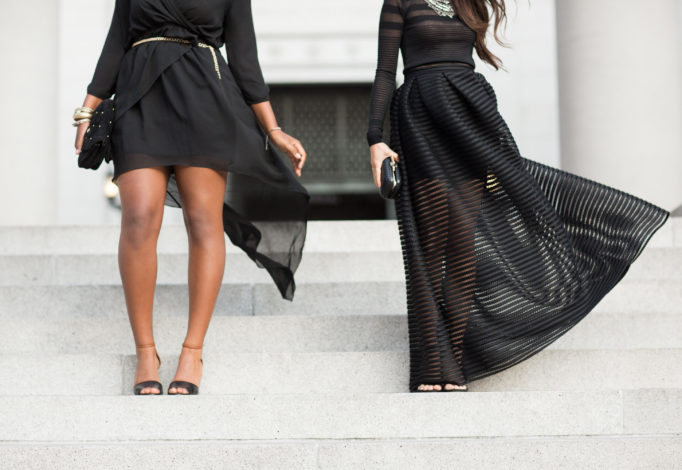
 April 27
April 27 